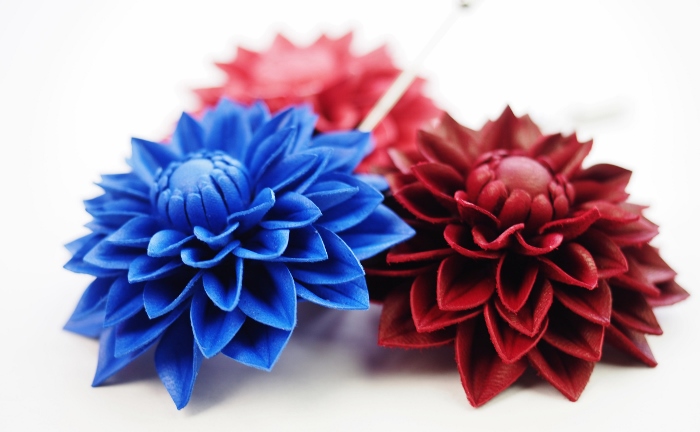 Stiffening leather tutorial
Stiffening leather tutorial
For my floral pieces I stiffen leather is several ways. Today I am going to share one of this ways with you. The result is a flat stiff piece of leather that can be shaped with a flower iron. I use flat stiff leather to make a range of flowers including my camellias, gerberas etc.So here is how I do it. But first of all the kit:
1. Measuring jug
2. A piece of genuine leather for stiffening
3. Bowl
4. White (PVA) glue
5. Measuring spoon
and a piece of plastic or a glass board as seen in the picture.
I use a rather thiсk PVA glue intended for craft purposes. The ratio of glue to water can be 1 part of glue to 5 -10 parts of water depending on how thick your leather is or how tacky your glue is and how stiff you want the leather to be. You might need to experiment with the quantities, but the general guidelines are: the thicker the leather the weaker the solution (less glue). The ready to use solution should look like milk.
I use a measuring spoon to measure the amount of glue.
In the picture 10 ml of glue are being mixed with 100 ml of water.
Dissolve the glue in water to get a solution resembling milk. If you have sensitive skin consider wearing gloves.
Immerse the piece of leather (about A4 size or so) into the solution and make sure it is well soaked in it.
When the whole piece has been soaked, twist it to get rid of extra solution. The leather should be almost dry.
Then stretch it to make it even and thin it a bit more. I tend to use leathers with a thickness of 0.6-0.8 mm or so the sellers say but it is still rather thick for the flower making. Stretching the wet piece of leather in some cases makes it thinner but it all depends on the properties of the particular leather you are using.
I stretch in all directions: horizontally, vertically and diagonally.
With your both hands flatten the stretch piece of leather on the smooth flat surface (like this glass board).
Leave the flattened and smoothed piece of leather to dry completely before cutting and tooling it. It might take up to 24 hours.
Coloured leather skins are rather delicate and may require more gentle handling than the black leather shown in the photos above.
Consider using a large kitchen tray where you can place your leather in one layer. Place the piece of leather into the tray (either side up) and pour the warm stiffening solution over it. Let it soak for several minutes. Most probably you will need to help the leather get well saturated by gently rubbing the solution into the leather with your fingertips. Try to do it carefully to avoid making any marks or damage the surface of the leather.
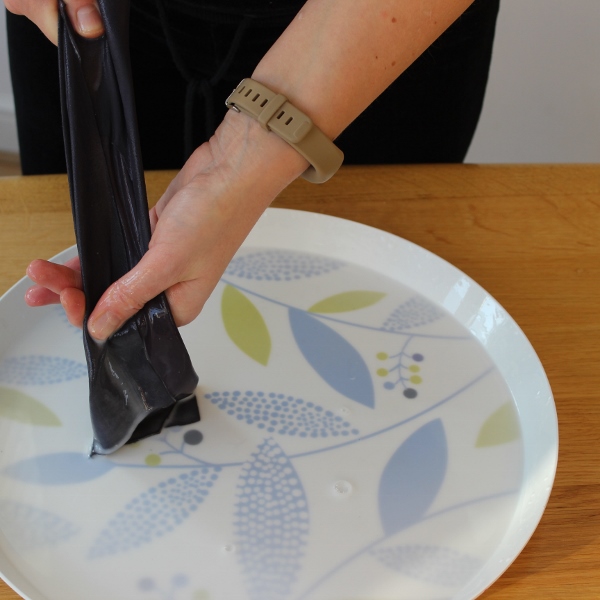
Once the leather has gone evenly darker all over its surface, lift it and gently squeeze any extra solution out of it by running it between your fingers. Then you can spread it onto a work surface or a glass table evenly as shown above and leave to dry completely.
I hope find this stiffening leather tutorial useful.
For more detailed instructions on how to stiffen coloured (especially pale) leather skins refer to our detailed LEATHER DAHLIA TUTORIAL.
Good luck with your stiffening!
You are welcome to follow me on Instagram here
or become my patron on Patreon here

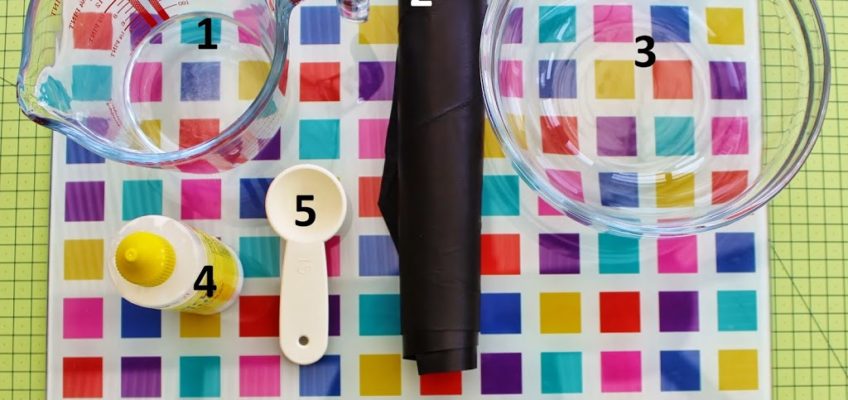
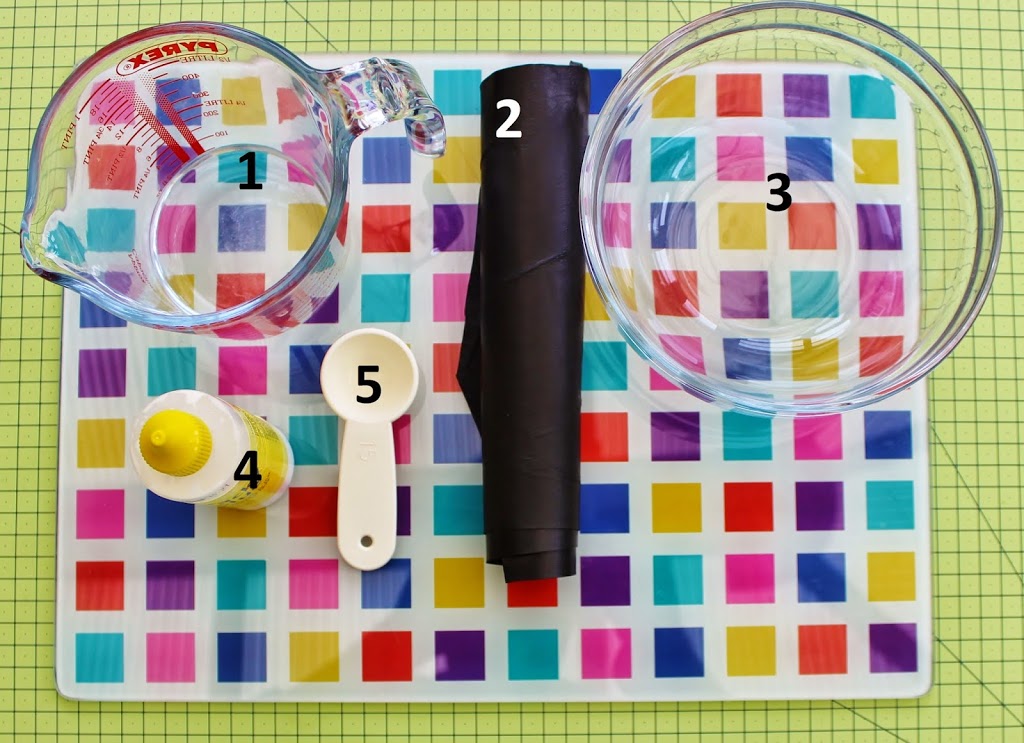
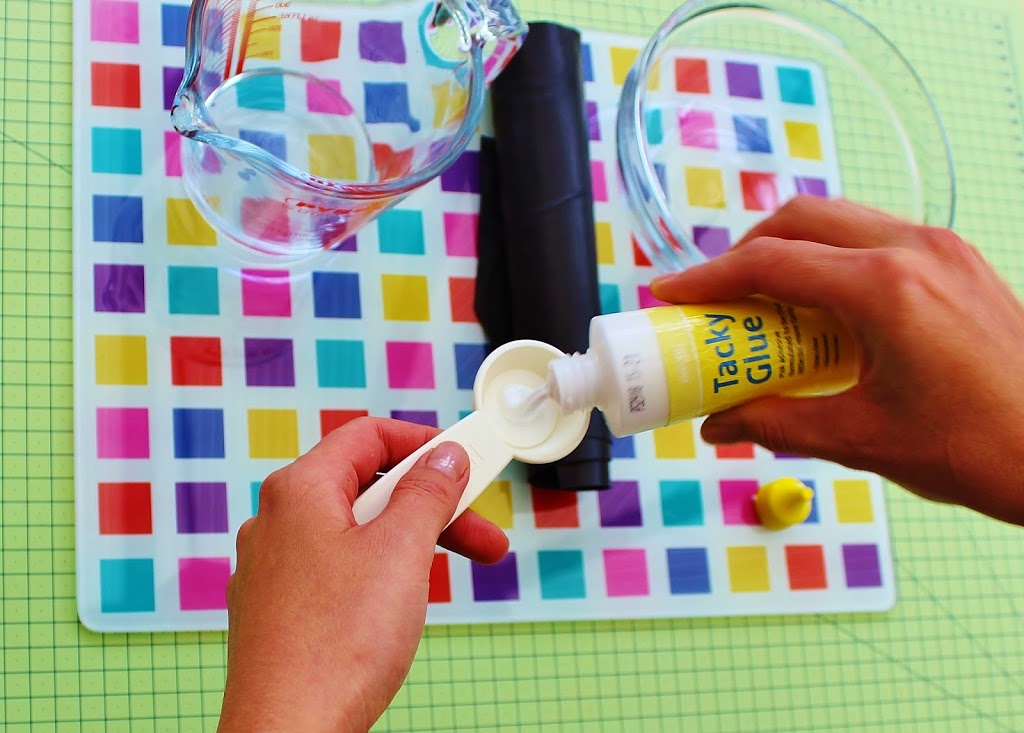
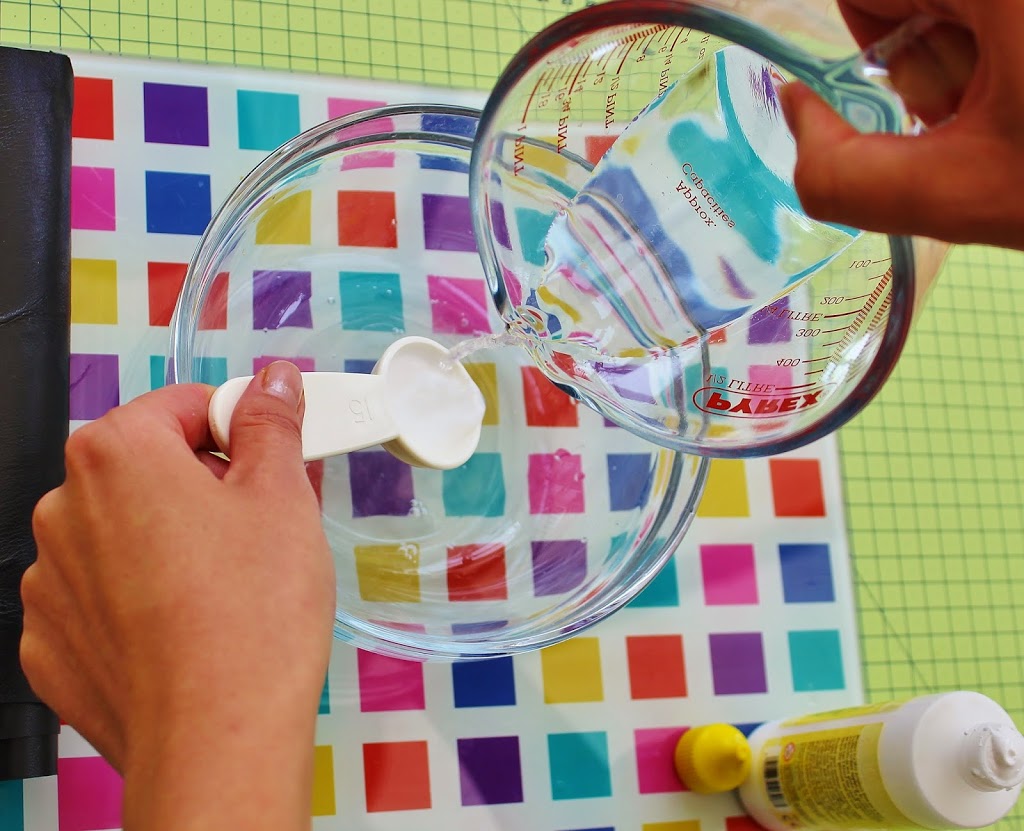
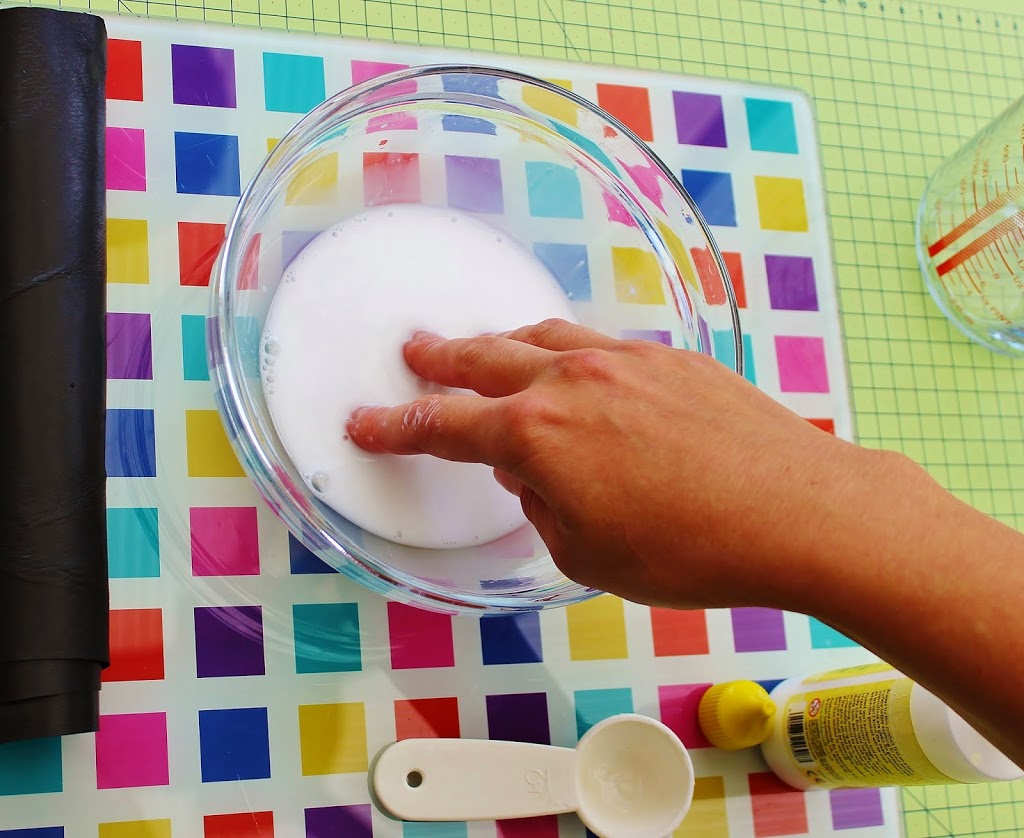
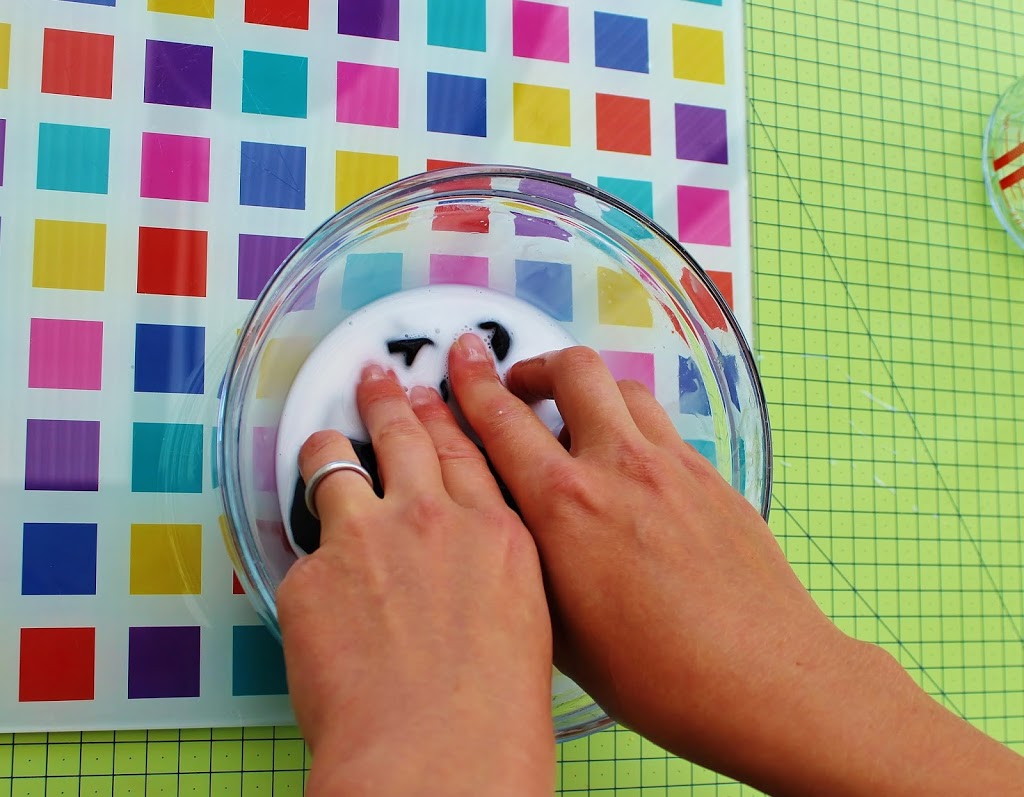
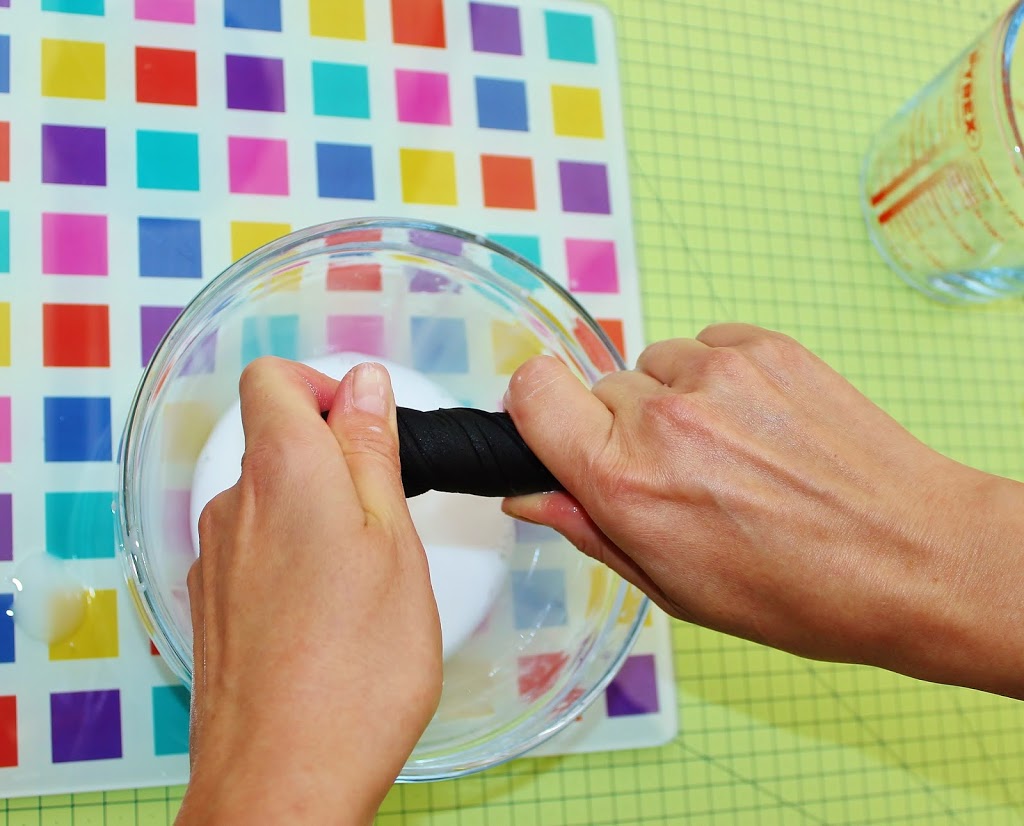
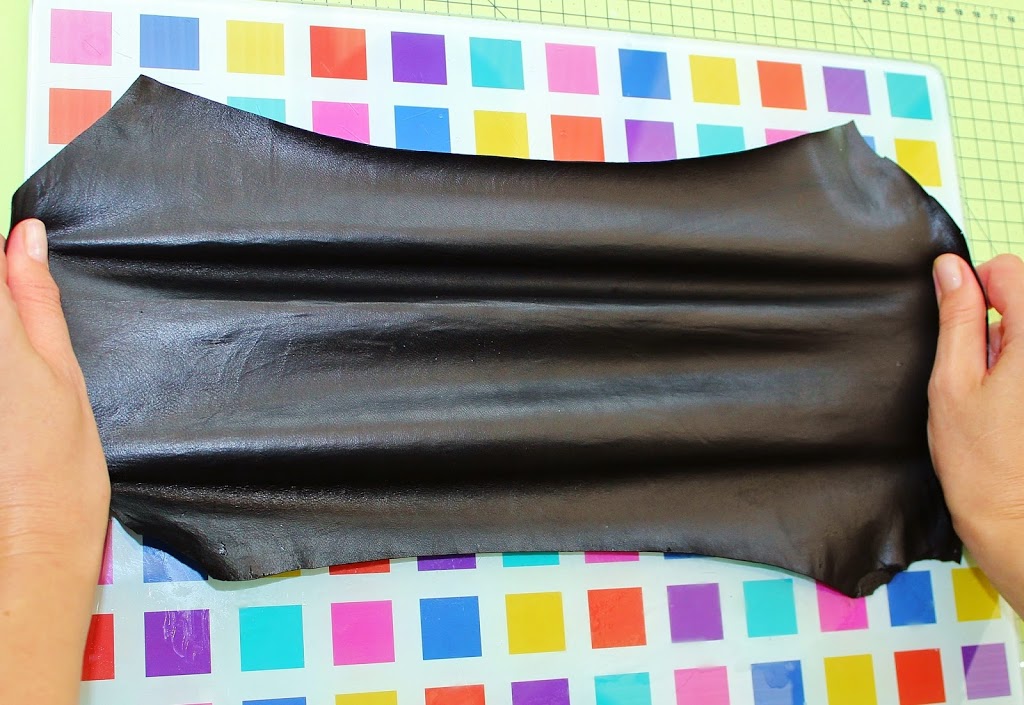

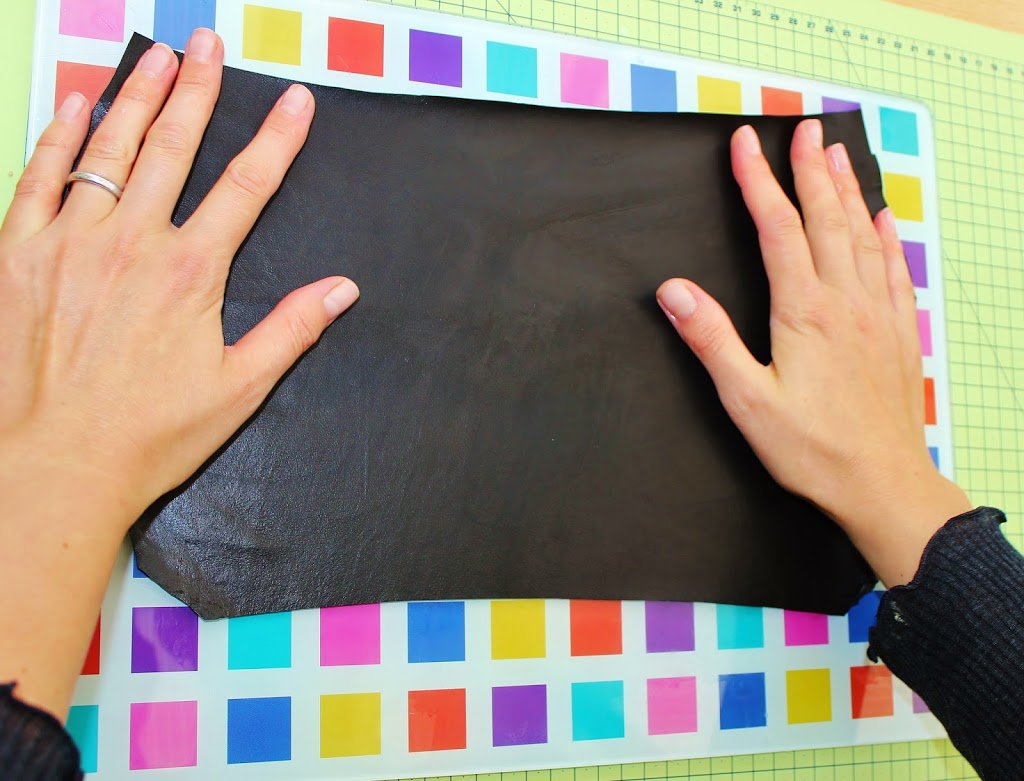
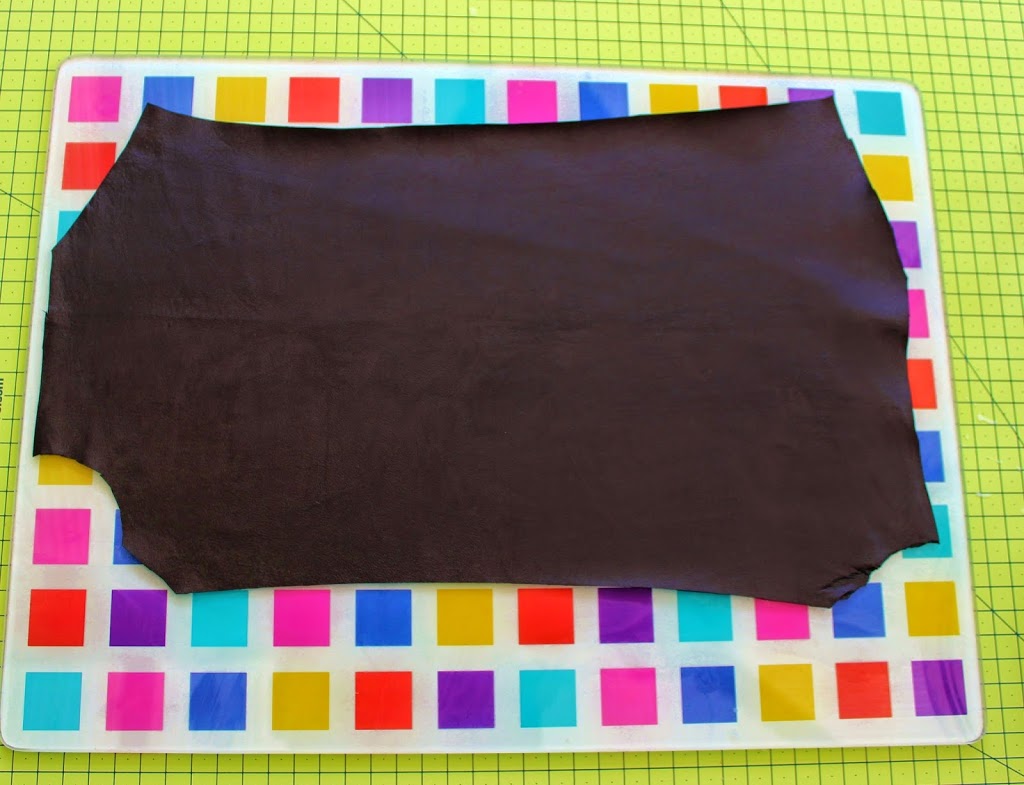
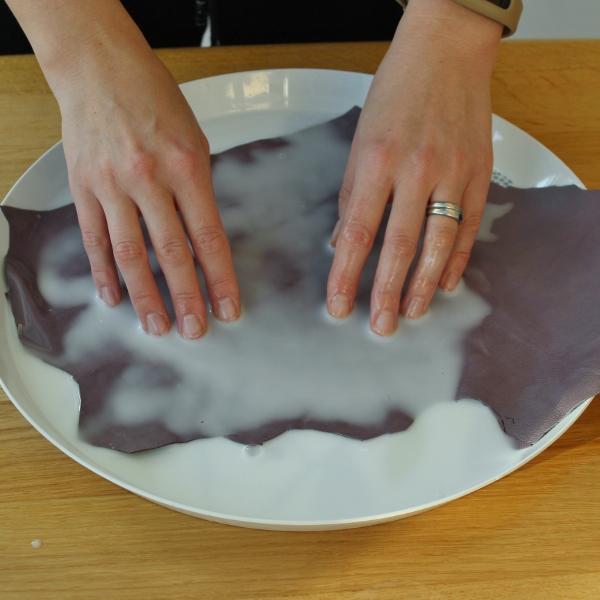
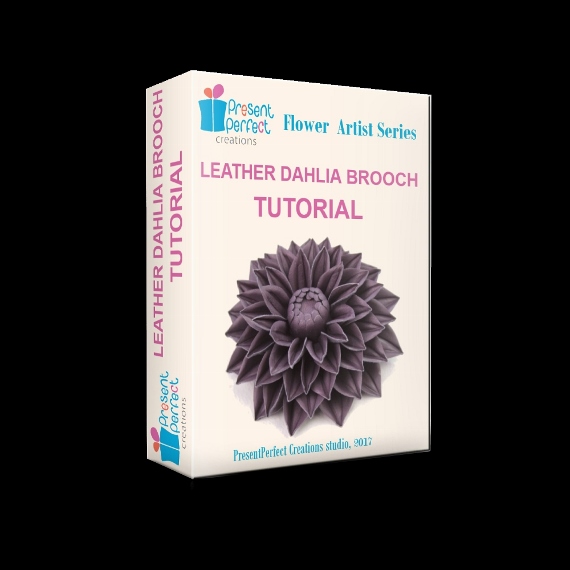
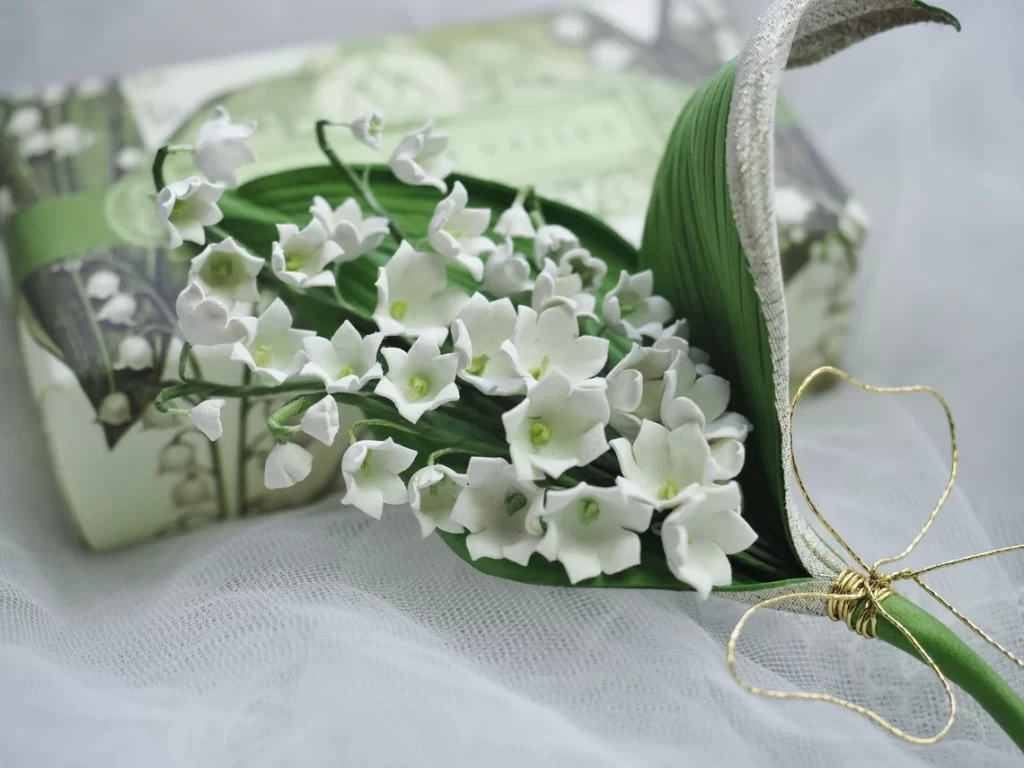
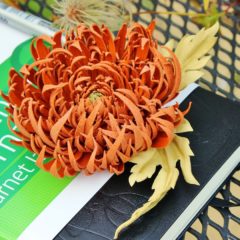
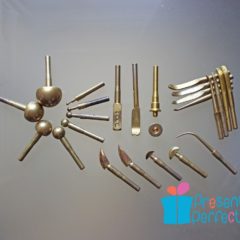
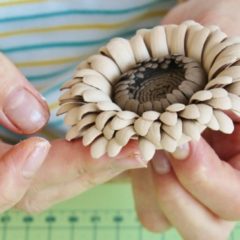
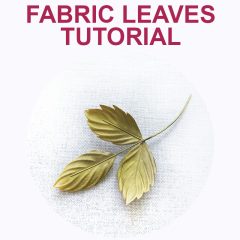
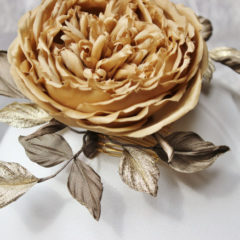
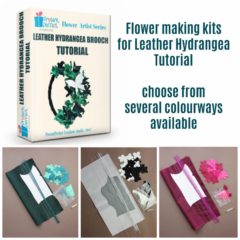

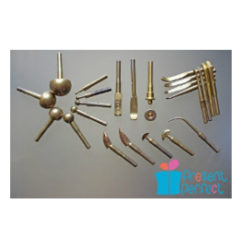
Leather and suede flowers | Present Perfect Creations
[…] In this post here I am sharing some tips on stiffening leather for making leather flowers. Hopefully you will find it […]
PresentPerfect Creations handmade fabric flower accessories
[…] To use time efficiently you can stiffen you leather in advance. I am explaining how to do in in my blog post here. It is better to use 2 contrasting colours, say, a darker leather for the centre and some pale […]